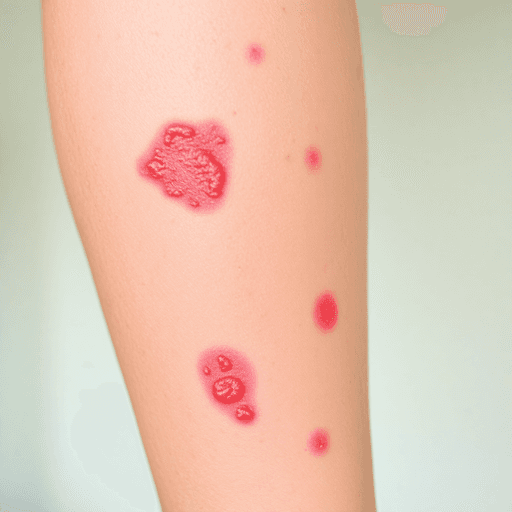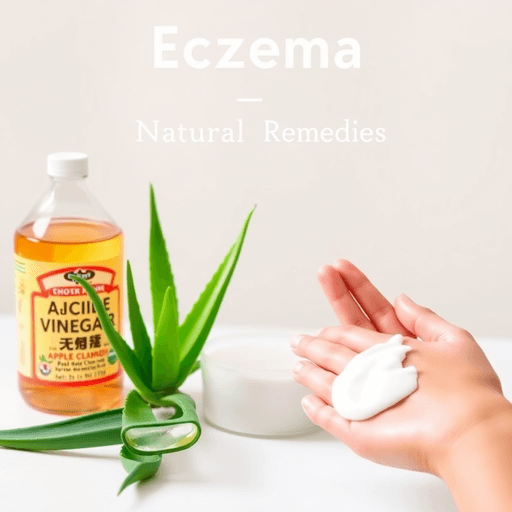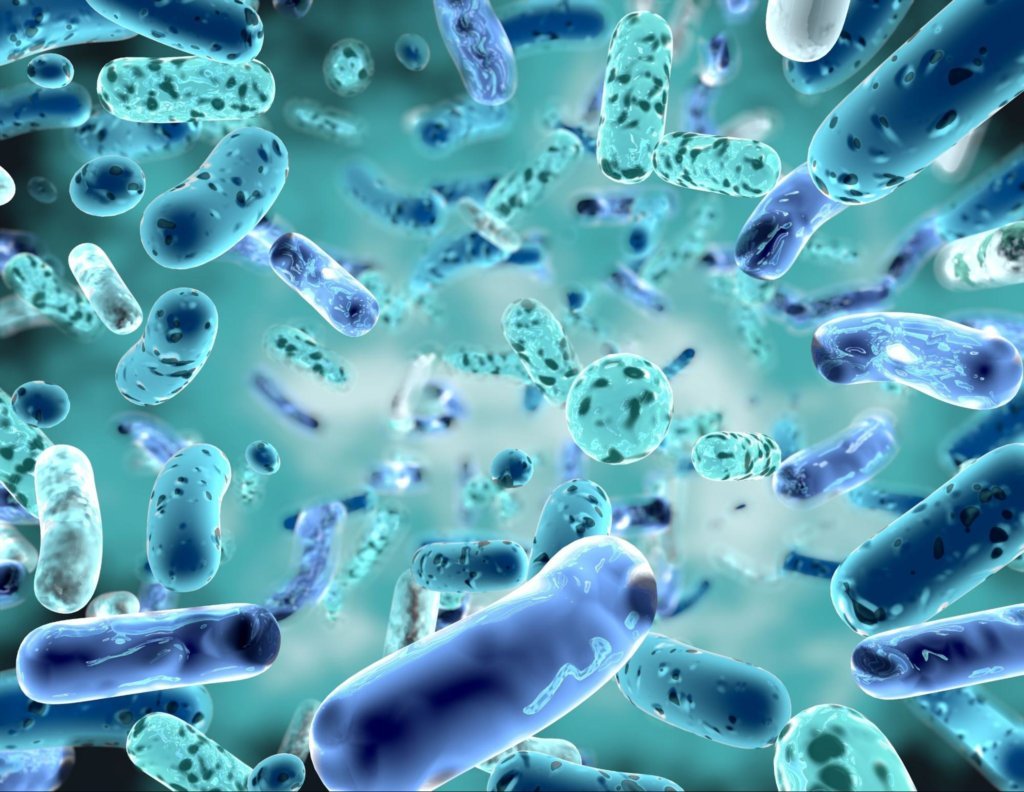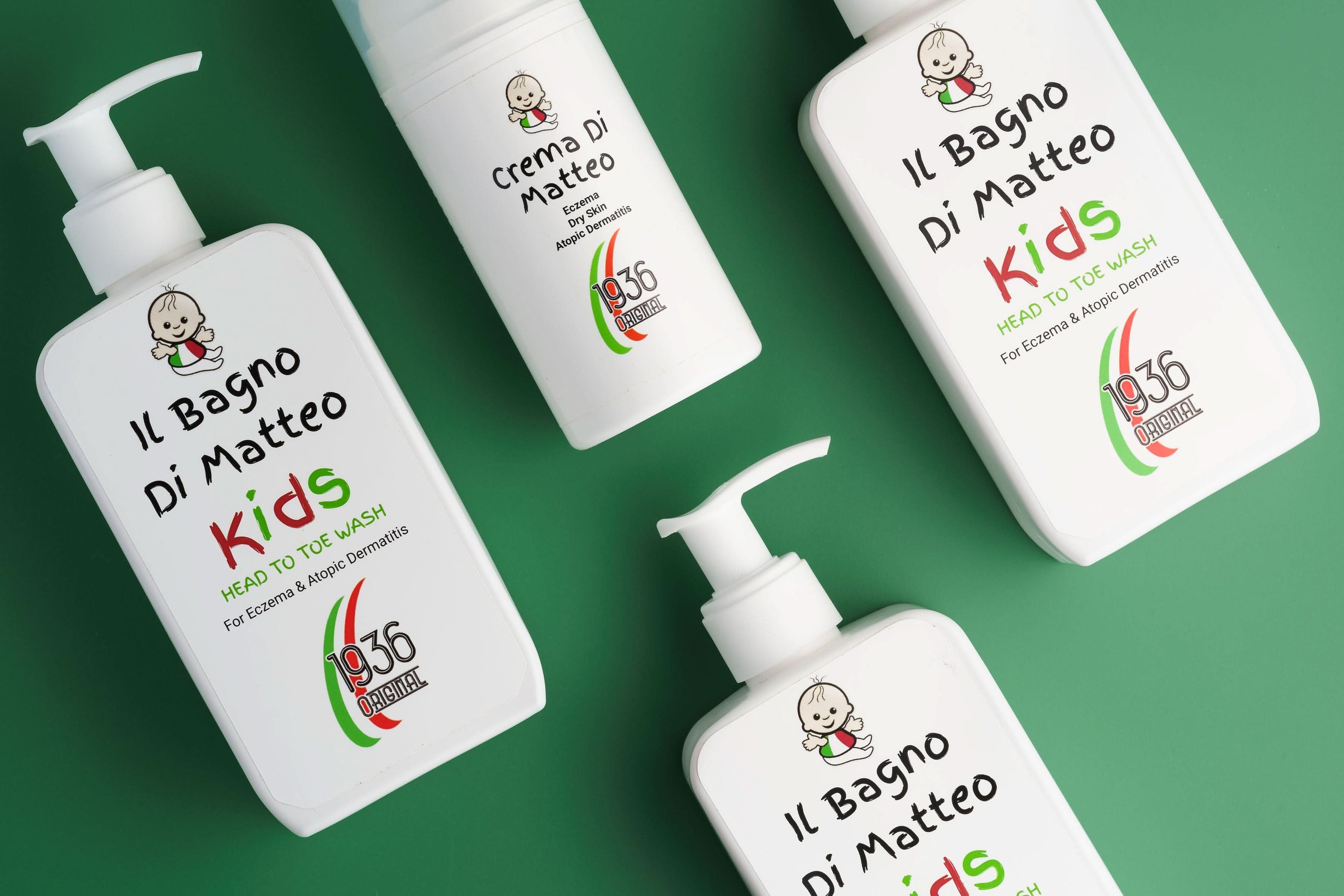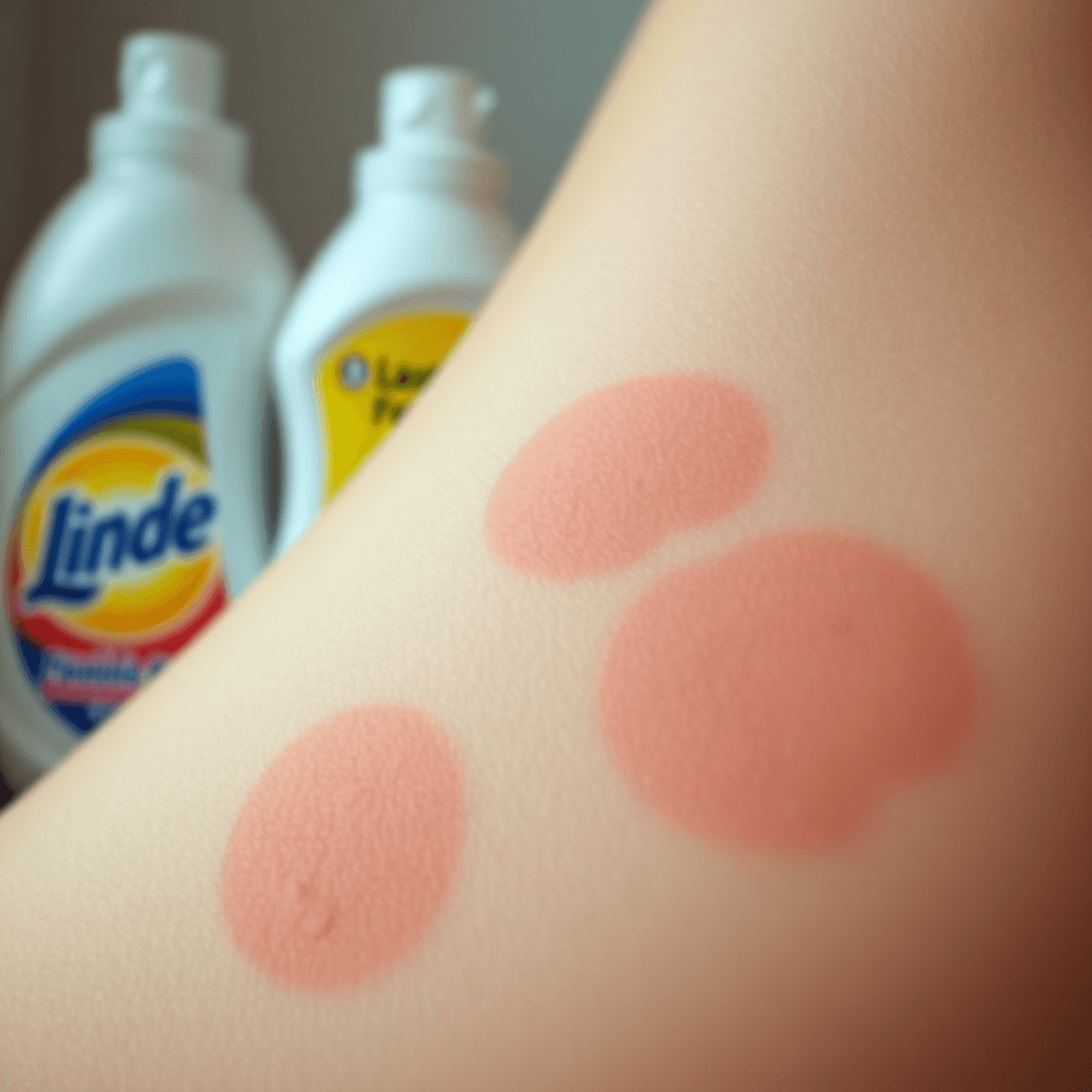Probiotics for Eczema: The Ultimate Guide to Relief

Introduction
Living with eczema can be a daily struggle, but emerging research points to an unexpected ally in managing this challenging skin condition: probiotics.
These beneficial microorganisms naturally inhabit various parts of your body, including your gut, where they play a crucial role in maintaining digestive health and supporting your immune system. The scientific community has identified a fascinating connection between your gut health and skin conditions - known as the gut-skin axis.
This relationship explains why the state of your gut microbiome can significantly impact your skin's health, particularly in conditions like eczema. When your gut bacteria are imbalanced, it can trigger inflammatory responses that manifest as skin issues.
In this comprehensive guide, you'll discover:
- The science behind probiotics and their impact on eczema
- Research-backed probiotic strains that show promise for skin health
- Practical ways to incorporate probiotics into your eczema management routine
- Real experiences from people who've used probiotics for eczema relief
- Safety considerations and potential side effects
Let's explore how these microscopic allies might help you find relief from eczema symptoms.
Understanding Eczema
Eczema refers to a group of inflammatory skin conditions that affect around 28% of people at some point in their lives. This long-lasting condition shows up as red, irritated patches of skin that can greatly affect daily activities and overall well-being.
Common Types of Eczema
There are several types of eczema, each with its own characteristics:
- Atopic Dermatitis: The most common type, known for causing red, itchy patches usually found on the face, hands, and feet. It often starts in childhood and can continue into adulthood.
- Contact Dermatitis: This type occurs when the skin comes into direct contact with irritants or allergens, resulting in localized inflammation and itching. Common triggers include soaps, detergents, and certain metals.
- Seborrheic Dermatitis: It appears as scaly patches on oily areas such as the scalp, face, and chest. Probiotic treatments have shown promise in managing this type.
- Perioral Dermatitis: A specific form that develops around the mouth area and is often mistaken for acne. Some studies suggest that certain probiotic strains may be beneficial in treating this condition.
Key Symptoms and Impact
The main symptoms of eczema include:
- Dry, flaky skin
- Severe itching (pruritus)
- Redness and swelling
- Thickened skin in chronic cases
- Possible infection in severe instances
These symptoms can create a difficult cycle: stress triggers flare-ups, which cause discomfort, leading to more stress. Many individuals with eczema experience:
- Disturbed sleep patterns
- Decreased involvement in social activities
- Difficulty focusing at work or school
- Limited clothing options due to sensitivity to certain fabrics
Causes and Triggers
Several factors contribute to the development of eczema:
- Genetic predisposition: Particularly mutations in the filaggrin gene
- Environmental factors: Including changes in temperature and humidity levels
- Immune system dysfunction: Resulting in heightened inflammatory responses
- Skin barrier disruption: Allowing moisture loss and irritant penetration
By understanding these different aspects of eczema, we can create effective management strategies, including exploring the potential role of probiotics in treatment approaches.
The Role of Gut Microbiome in Eczema
Your gut is home to trillions of microorganisms, collectively known as the gut microbiome. These tiny inhabitants play crucial roles in:
- Nutrient absorption
- Immune system regulation
- Protection against harmful bacteria
- Production of essential vitamins
- Maintenance of skin health
A healthy gut microbiome maintains a delicate balance between beneficial and potentially harmful bacteria. This balance directly influences your skin's condition through what scientists call the "gut-skin axis."
Understanding Dysbiosis and Eczema
When your gut microbiome becomes imbalanced - a condition called dysbiosis - it can trigger a cascade of inflammatory responses throughout your body. Research shows that eczema sufferers often display:
- Reduced levels of beneficial Bifidobacteria
- Higher concentrations of harmful Clostridia
- Increased presence of Staphylococcus aureus
These imbalances create gaps in your intestinal barrier, allowing unwanted substances to enter your bloodstream. This "leaky gut" phenomenon can intensify eczema symptoms and create persistent skin inflammation.
The Th2 Immune Response Connection
Your gut microbiome directly influences your immune system's behaviour, particularly the Th2 immune response. In eczema patients, an overactive Th2 response can:
- Increase production of inflammatory compounds
- Trigger excessive allergic reactions
- Compromise skin barrier function
- Heighten sensitivity to environmental triggers
Recent studies indicate that specific bacterial strains in your gut can help regulate this Th2 response. A balanced gut microbiome supports proper immune function by:
- Stimulating regulatory T cells
- Reducing inflammatory markers
- Supporting skin barrier integrity
- Maintaining immune system balance
The gut-skin connection reveals why traditional eczema treatments focusing solely on skin symptoms might not address the root cause. Understanding this relationship opens new possibilities for managing eczema through gut health optimisation.
Probiotics: A Potential Solution for Eczema Relief?
Probiotics are living microorganisms that provide health benefits when consumed in adequate amounts. These beneficial bacteria work alongside your body's natural microbiome to support various aspects of health, including skin conditions like eczema.
Promising Probiotic Families for Eczema Management
Two primary probiotic families show promising results for eczema management:
1. Lactobacillus Strains
- L. rhamnosus GG® - reduces inflammation and strengthens skin barrier
- L. rhamnosus HN001® - helps prevent eczema development in early life
- L. salivarius LS01 - decreases severity of atopic dermatitis symptoms
2. Bifidobacterium Strains
- B. lactis BB12® - supports immune system balance
- B. breve M-16V® - reduces eczema severity
- B. lactis Bi-07 - improves skin condition scores
How Probiotics Support Skin Health
These probiotic strains work through multiple mechanisms to support skin health:
- Strengthen the gut barrier
- Reduce inflammatory responses
- Balance immune system reactions
- Decrease harmful bacteria populations
Age-Specific Benefits of Probiotics
Research indicates specific benefits for different age groups:
- Infants receiving probiotic supplementation show reduced risk of developing eczema.
- Adults often experience improvements in existing symptoms.
The effectiveness varies based on the specific strain and individual response.
Sources of Probiotics
Probiotics can be found in:
- Supplement form (capsules, powders)
- Fermented foods (yoghurt, kefir)
- Specially formulated skincare products
The growing interest in probiotic treatments reflects their potential as a natural approach to eczema management. While not a cure, these beneficial bacteria offer promising support for those seeking relief from eczema symptoms.
Research on Probiotics for Eczema Management
Clinical studies have shown promising results for specific probiotic strains in managing eczema symptoms. Research data highlights several key strains that demonstrate significant therapeutic potential:
1. Lactobacillus rhamnosus GG® (LGG)
- Reduced eczema severity in children by 50%
- Decreased inflammatory markers associated with skin flare-ups
- Showed preventive effects when administered during pregnancy
2. Bifidobacterium lactis BB12®
- Combined with LGG, prevented eczema development in high-risk infants
- Demonstrated a 36% reduction in symptom severity
- Improved skin barrier function
3. Lactobacillus salivarius LS01
- Reduced Staphylococcus presence on the skin
- Improved atopic dermatitis symptoms within 8 weeks
- Decreased itching intensity by 45%
Research from the Journal of Allergy and Clinical Immunology indicates that timing plays a crucial role. Studies show probiotic supplementation proves most effective when:
- Started during pregnancy for prevention
- Administered within the first six months of life
- Used consistently for at least 8 weeks for symptom management
A meta-analysis of 25 clinical trials revealed that probiotics reduced the risk of eczema development by 22% in high-risk infants. The most substantial benefits occurred with multi-strain formulations containing both Lactobacillus and Bifidobacterium species.
Recent studies also point to Bifidobacterium breve M-16V® as a promising strain. Clinical trials demonstrate its ability to decrease eczema severity and regulate the Th2 immune response, which plays a central role in allergic reactions.
Incorporating Probiotics into Your Eczema Management Plan
A balanced diet rich in probiotics plays a crucial role in managing eczema symptoms. You can introduce these beneficial bacteria through both natural food sources and targeted supplements.
Natural Probiotic Food Sources:
- Plain yoghurt - Choose varieties with live cultures, preferably unsweetened
- Kefir - A fermented milk drink containing multiple probiotic strains
- Kimchi - Korean fermented vegetables packed with beneficial bacteria
- Sauerkraut - Fermented cabbage rich in probiotics
- Miso - Traditional Japanese fermented soybean paste
- Kombucha - Fermented tea beverage
Daily Meal Integration Tips:
- Start your day with probiotic yoghurt topped with fresh fruits
- Replace regular milk with kefir in smoothies
- Add kimchi or sauerkraut as side dishes to main meals
- Use miso paste in soups and marinades
- Drink kombucha as a refreshing afternoon beverage
Supplementation Options:
- Probiotic capsules specifically formulated for skin health
- Topical applications like probiotic creams and sprays
- Infant-specific probiotic drops for babies with eczema
Dietary Considerations:
- Store fermented foods properly to maintain active cultures
- Consume probiotic foods regularly for consistent benefits
- Pair probiotics with prebiotics to enhance effectiveness
- Choose organic options when possible to avoid potential triggers
- Read labels carefully to ensure products contain live cultures
Remember to introduce probiotic-rich foods gradually into your diet to allow your system to adjust. Track your skin's response to different probiotic sources to identify what works best for your specific case.
Safety Considerations When Using Probiotics for Eczema Treatment
While probiotics offer promising benefits for eczema management, understanding their safety profile is crucial for responsible use.
General Safety Profile
Probiotics are considered safe for most people when used as directed. The risk of serious side effects is minimal in healthy individuals, particularly when consuming probiotic-rich foods.
Common Side Effects
You might experience mild digestive symptoms during the first few days:
- Temporary bloating
- Mild stomach discomfort
- Gas
- Changes in bowel movements
Who Should Exercise Caution
Certain groups need to consult healthcare providers before starting probiotics:
- People with compromised immune systems
- Those with serious underlying health conditions
- Individuals recovering from surgery
- Pregnant women
- Young children
Special Precautions
- Start with small doses to assess tolerance
- Choose reputable brands with documented strain identification
- Store supplements according to package instructions
- Check expiration dates
Potential Risks
Some rare but serious complications can include:
- Allergic reactions
- Risk of infection in severely immunocompromised individuals
- Antibiotic resistance transfer
- Harmful metabolic effects in sensitive individuals
If you experience persistent side effects or unusual symptoms while taking probiotics, discontinue use and seek medical advice. Your healthcare provider can help determine if probiotics are suitable for your specific situation.
Personal Experiences with Probiotics for Eczema Relief: Insights from MyEczemaTeam Community
MyEczemaTeam's 49,000+ member community offers valuable insights into real-world experiences with probiotic treatments for eczema. These personal accounts paint a diverse picture of probiotic effectiveness:
Positive Experiences:
- "After three months of taking Lactobacillus supplements, my flare-ups reduced significantly. My skin feels less inflamed" - Sarah, 34
- "Combining probiotics with a dairy-free diet has helped control my eczema patches. The itching has decreased by about 70%" - Mike, 42
- "My child's eczema improved within weeks of starting probiotics. We noticed less redness and scaling" - Emma, mother of a 6-year-old
Mixed Results:
- "The probiotics helped my gut health but didn't make a noticeable difference to my skin" - James, 28
- "I saw initial improvements, but the effects plateaued after a few months" - Linda, 39
Unsuccessful Attempts:
- "Despite trying different probiotic strains for six months, I didn't notice any significant changes in my eczema symptoms" - David, 45
These varied experiences highlight the individualised nature of eczema treatment. Some members report substantial improvements, while others experience minimal changes. Many users emphasise the importance of consistency and patience when trying probiotic treatments.
Conclusion: Exploring Probiotics as a Complementary Approach to Eczema Management
Probiotics offer a promising option for managing eczema when used alongside a comprehensive treatment plan. Research has identified specific strains such as L. rhamnosus GG® and B. lactis BB12® that may provide benefits for skin health.
Key takeaways for using probiotics in eczema treatment:
- Combine probiotic supplementation with traditional eczema treatments
- Choose scientifically-backed probiotic strains
- Maintain consistency in probiotic intake for at least 8 weeks
- Include probiotic-rich foods in your daily diet
- Monitor your skin's response and adjust accordingly
Your eczema management plan should include various approaches, such as proper skincare, avoiding triggers, and following medical treatments prescribed by your healthcare provider. Probiotics can be a valuable addition to this toolkit, potentially reducing inflammation and supporting your immune system's balance.
Remember to consult your healthcare provider before starting any new treatment plan, as they can help determine the most suitable probiotic options for your specific situation.
FAQs
What is eczema and what are its common types?
Eczema refers to a group of inflammatory skin conditions characterized by dry, flaky skin and severe itching. Common types of eczema include atopic dermatitis, contact dermatitis, dyshidrotic eczema, and nummular eczema, each with its own specific characteristics.
How can probiotics help with eczema management?
Probiotics are living microorganisms that provide health benefits, particularly for gut health. They support skin health by reducing inflammation and promoting a balanced immune response. Specific strains like Lactobacillus rhamnosus GG® and Bifidobacterium lactis BB12® have shown promising results in managing eczema symptoms.
What are some natural sources of probiotics?
Natural sources of probiotics include fermented foods such as plain yogurt (preferably with live cultures), kefir, sauerkraut, kimchi, miso, and kombucha. Incorporating these foods into your diet can help maintain a healthy gut microbiome.
Are there any safety considerations when using probiotics for eczema treatment?
While probiotics are generally considered safe for most people when used appropriately, some individuals may experience mild digestive symptoms initially. It's advisable for certain groups, such as those with weakened immune systems or underlying health conditions, to consult healthcare providers before starting probiotic supplementation.
What clinical evidence supports the use of probiotics for eczema?
Clinical studies have demonstrated that specific probiotic strains can significantly reduce eczema severity. For instance, Lactobacillus rhamnosus GG® has been shown to decrease inflammation and reduce eczema severity in children by up to 50%, while Bifidobacterium lactis BB12® has helped prevent eczema development in high-risk infants.
Can I expect immediate results from taking probiotics for eczema?
Results from probiotic supplementation may vary among individuals. Some users report positive experiences within a few months, while others may not notice significant changes. It's important to approach probiotic use as part of a comprehensive management plan for eczema rather than expecting immediate relief.


